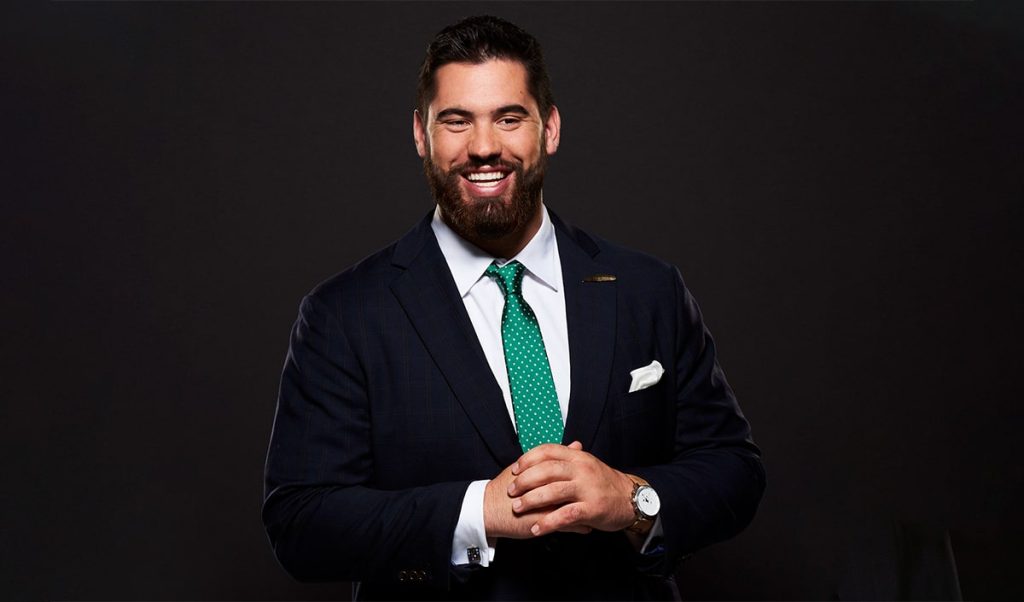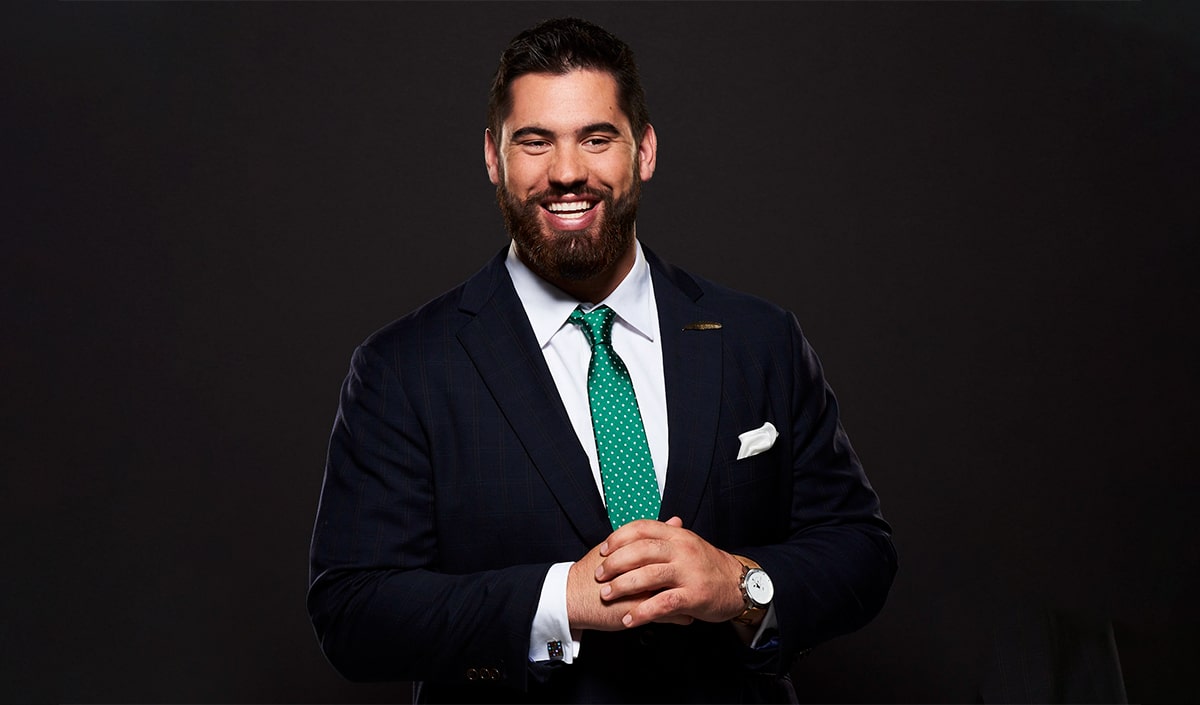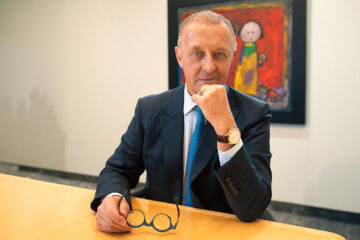Laurent Duvernay-Tardif: Hero Worship

Helping a long-term care facility endure the pandemic months after winning a Super Bowl is Laurent Duvernay-Tardif’s story of caring and commitment.
What defines a “national hero”? Is it undertaking a personal initiative designed to benefit society for the greater good, such as 100-year-old Captain Tom Moore walking 100 lengths of his English garden to raise funds for the National Health Service at the start of the pandemic? Or perhaps it’s Canada’s Terry Fox, whose 1980 Marathon of Hope to raise funds for cancer research continues in his memory today and has raised more than $750 million to date?
Or perhaps it is an athletic accomplishment that causes a nation to pound its chest with pride, such as Bobby Moore, who captained the English national football team to a home-soil World Cup championship in 1966 and whose statue guards the entrance to Wembley Stadium? Or is it Paul Henderson, who became a national hero overnight in Canada by scoring the winning goal with just 34 seconds remaining, as Canada defeated the Soviet Union 6-5 to win hockey’s 1972 Summit Series?
Whatever the measurement, Laurent Duvernay-Tardif certainly fits the bill as perhaps a national hero who is defined not by what they accomplished or what they did, but by the content of their character. For here is a professional football player who just won the Super Bowl, yet chooses not to play the next season. Instead, as a medical professional, he chooses to stay home in Quebec and assist a long-term care facility get through those early and terrible days of the pandemic. Behold, a man to be inducted into Canada’s Walk of Fame as its inaugural National Hero Honour. And there is no argument.
Duvernay-Tardif is being inducted for his accomplishments on and off the football field. Studying medicine and playing football at McGill University in Montreal, he was drafted in 2014 by the National Football League’s Kansas City Chiefs as only the fourth medical school graduate to play in the NFL. Later, as the starting right guard, he went on to help the Chiefs win the Super Bowl in February 2020, ending a 50-year championship drought.
About a month later, the pandemic hit. He did not hesitate to join a new team, fighting not an opponent on the field, but one which was invisible.
“Looking back on it, I was proud to say I was able to make that sacrifice,” says Duvernay-Tardif in an interview with Dolce. “The last year in the long-term care facility was tough, probably the hardest thing I’ve had to go through. When they shut the borders, I asked myself, How can I help? At the start, long-term care facilities were really hit badly by the first couple of waves of COVID-19, and I was part of a group that went back in there and helped. It was pretty chaotic, as we were all new people doing new things, trying to serve a really vulnerable patient population of elderly people. It was really challenging to constantly adapt to all these different rules.”
In July 2020, he announced he was opting out of the 2020 NFL season due to the pandemic, becoming the first NFL player to opt out of the upcoming season. Later that year, in recognition for his selfless actions to help others beyond himself, Duvernay-Tardif was named a co-recipient of Sports Illustrated’s Sportsperson of the Year award, as well as co-winner of the Lou Marsh Trophy, given annually to Canada’s top athlete. In 2021, he was the recipient of the Muhammad Ali Sports Humanitarian Award for his decision to opt out of the NFL season and instead stay home to fight the pandemic.
“But, If I Hadn’t Done It, I Would Have Been Disappointed In Myself For The Next 40 Years”
“I often ask myself why I am getting all this credit, when there are so many more people doing so much more than I was doing,” he says. “But, if I hadn’t done it, I would have been disappointed in myself for the next 40 years, because I know I’m going to stay in the medical community. I made a decision that was in line with my convictions and what I want to accomplish. Football has given me so much, but you also have to give back.”
Duvernay-Tardif will be continuing his football career, now with the New York Jets.
Duvernay-Tardif is fully engaged with his Laurent Duvernay-Tardif Foundation along with his girlfriend of 10 years, Florence Dubé-Moreau, who travels the world as an active and successful art curator. Balance is key in his life, which is also the mission behind the foundation, to promote balance in academics, arts and sports, and to help young people in Quebec schools round out their lives and find their passions with interests in all three disciplines.
Whether he is working 24-7 to protect the vulnerable in a long-term care facility or working 24-7 to hold aloft the Vince Lombardi Trophy, those are the kinds of acts that make up the fibre and being of Laurent Duvernay-Tardif. Many people often ask what defines a national hero. More often than not, by their own actions, they define themselves.
www.laurentduvernaytardif.com
@laurentduvernaytardif
Interview by Estelle Zentil



















































































